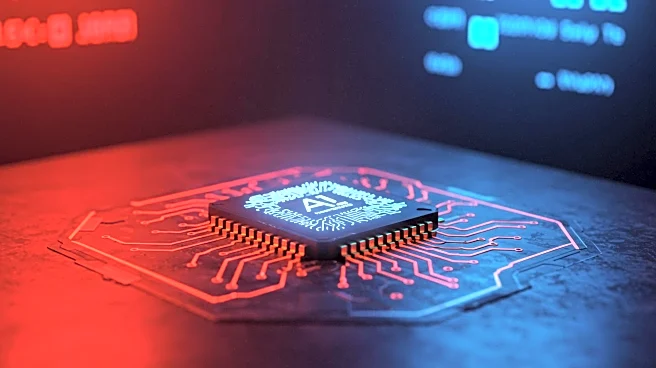What is the story about?
What's Happening?
President Trump has confirmed a new arrangement allowing American companies Nvidia and Advanced Micro Devices to export certain AI chips to China. This decision reverses previous restrictions and involves the U.S. government receiving a 15 percent cut of the revenue from these sales. The move has sparked concerns among national security experts, including Matt Pottinger, Trump's former deputy national security adviser, who warned that selling Nvidia's H20 chip to China could endanger the U.S.'s economic and military edge in artificial intelligence. The arrangement is seen as a concession to Chinese President Xi Jinping, who has been pressing for the removal of U.S. export controls on advanced chips.
Why It's Important?
The decision to allow AI chip exports to China has significant implications for U.S. national security and economic interests. By potentially compromising the technological edge in AI, the U.S. risks losing its competitive advantage in a critical sector. This move could also shift the balance of power in global technology markets, benefiting Chinese companies that are eager to deploy AI services using these chips. The arrangement may undermine efforts to maintain strict export controls designed to protect American security interests, raising concerns about the long-term impact on U.S. technological leadership.
What's Next?
The Trump administration's decision may lead to further negotiations with China, as Beijing is likely to push for more concessions on advanced semiconductor exports. The U.S. government may face pressure to reconsider its stance on export controls, especially if Chinese companies continue to demand access to high-powered AI chips. Additionally, the arrangement could prompt discussions within the U.S. about balancing economic gains with national security priorities, potentially influencing future trade policies.
















